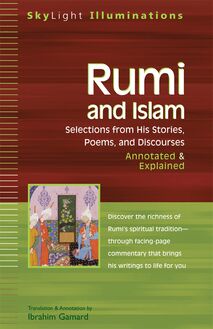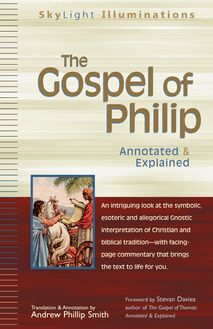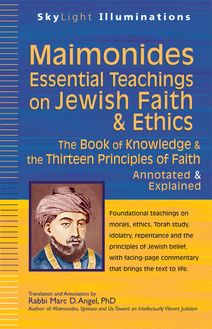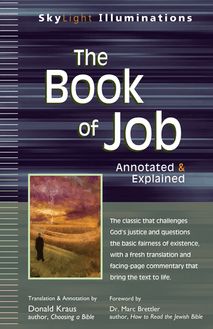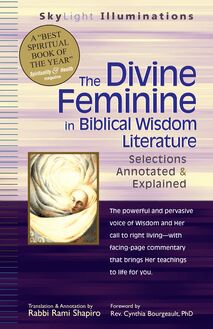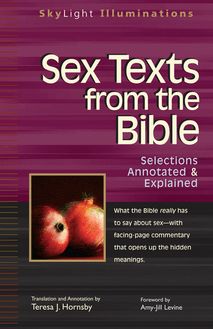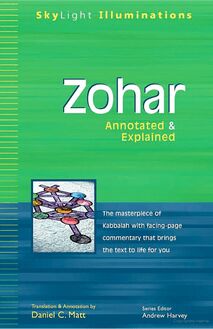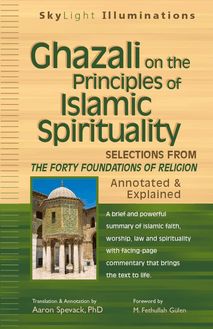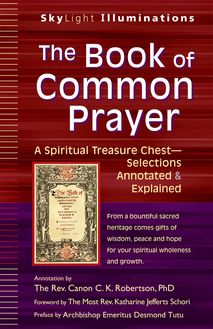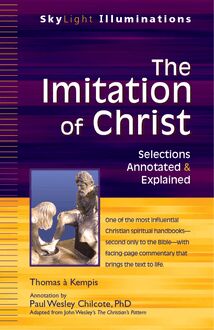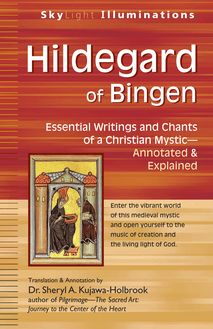-
 Univers
Univers
-
 Ebooks
Ebooks
-
 Livres audio
Livres audio
-
 Presse
Presse
-
 Podcasts
Podcasts
-
 BD
BD
-
 Documents
Documents
-
- Cours
- Révisions
- Ressources pédagogiques
- Sciences de l’éducation
- Manuels scolaires
- Langues
- Travaux de classe
- Annales de BEP
- Etudes supérieures
- Maternelle et primaire
- Fiches de lecture
- Orientation scolaire
- Méthodologie
- Corrigés de devoir
- Annales d’examens et concours
- Annales du bac
- Annales du brevet
- Rapports de stage
La lecture à portée de main
Vous pourrez modifier la taille du texte de cet ouvrage
Découvre YouScribe en t'inscrivant gratuitement
Je m'inscrisDécouvre YouScribe en t'inscrivant gratuitement
Je m'inscrisEn savoir plus
Vous pourrez modifier la taille du texte de cet ouvrage
En savoir plus

Description
Teachings from this fourteenth-century mystic provide spiritual direction and call for you to open yourself, body and soul, to divine love.
Many people are familiar with the phrase "All shall be well" but do not know much, if anything, about Julian of Norwich, the fourteenth-century English mystic who wrote those words. Thomas Merton declared her to be “without a doubt one of the most wonderful of all Christian voices,” and former Archbishop of Canterbury Rowan Williams says that her writings “may well be the most important work of Christian reflection in the English language.”
This accessible introduction to Julian's Revelations of Divine Love, an extended reflection on a series of her mystical visions, includes an informative introduction that addresses the historical, cultural and sociological context of Julian’s life and writings. Mary Earle’s facing-page commentary focuses on Julian’s profoundly hopeful vision of humanity and God, her creative imagery and her rigorous honesty about the spiritual life. Drawing directly from Julian’s text, Earle addresses a variety of topics essential to understanding Julian’s mysticism, including the infinite nature of God, the life of prayer, God’s suffering with us, the eternal and undying life of the soul, the motherhood of Jesus and the motherhood of God, “all shall be well” and more.
Drawing directly from Julian’s text, the commentary addresses a variety of topics including the infinite nature of God, the life of prayer, God’s suffering with us, the eternal and undying life of the soul, the motherhood of Jesus and the motherhood of God, “all shall be well” and more.
Foreword ix
Acknowledgments xiii
Introduction xv
1. The Visions 3
2. Images for God 21
3. Our Relationship to God 27
4. Christ's Passion 61
5. The Trinity 77
6. The Question of Sin 83
7. Prayer and Faith 101
8. The Soul 123
9. Parable of the Lord and the Servant 141
10. The Motherhood of God 165
11. All Shall Be Well 183
Notes 193
Suggestions for Further Reading 195
Sujets
Informations
| Publié par | Turner Publishing Company |
| Date de parution | 21 novembre 2013 |
| Nombre de lectures | 0 |
| EAN13 | 9781594735622 |
| Langue | English |
Informations légales : prix de location à la page 0,1000€. Cette information est donnée uniquement à titre indicatif conformément à la législation en vigueur.
Extrait
Thank You For Purchasing This Skylight Paths eBook!
Sign up for our e-newsletter to receive special offers and information on the latest new books and other great eBooks from SkyLight Paths.
Sign Up Here
or visit us online to sign up at www.skylightpaths.com .
Looking for an inspirational speaker for an upcoming event, conference or retreat?
SkyLight Paths authors are available to speak and teach on a variety of topics that educate and inspire. For more information about our authors who are available to speak to your group, visit www.skylightpaths.com/page/category/SLP-SB .
To book an event, contact the SkyLight Paths Speakers Bureau at publicity@skylightpaths.com or call us at (802) 457-4000.
For Doug, who knows that love is oure lordes mening
Contents
Foreword
Acknowledgments
Introduction
1. The Visions
2. Images for God
3. Our Relationship to God
4. Christ s Passion
5. The Trinity
6. The Question of Sin
7. Prayer and Faith
8. The Soul
9. Parable of the Lord and the Servant
10. The Motherhood of God
11. All Shall Be Well
Notes
Suggestions for Further Reading
About the Authors
Copyright
Also Available
About SkyLight Paths
About SkyLight Illuminations
Sign Up for Email Updates
Send Us Your Feedback
Foreword
Roberta C. Bondi
I first encountered the writings of Julian of Norwich in 1979 when a friend of mine sent me a copy of the Short Text of Julian s Revelations of Divine Love . I knew nothing about Julian at the time; I hadn t heard of her in seminary church history courses and I had never heard her mentioned afterward. Nevertheless, here she was, a fourteenth-century English woman who had had visions, who had written about them (and, as I learned, was the first woman to write a piece of literature in English), and whose work, somehow or another, had been preserved for the future. Considering that it was 1979 and I had just been appointed to the first tenure-track position a woman had ever held, the very existence of Julian was a revelation in itself. As a woman in such a place as I was, I needed all the moral support I could get.
Unfortunately, at that point, I was not able to benefit much from her. I had had enough exposure to hellfire-and-brimstone Christianity growing up that, whatever I believed in my head at that point, I simply could not believe in my bones that her central convictions about God s absolute love for human beings as well as God s total lack of judgment of us could be true. Yes, of course, God loved me, but deep inside in some inaccessible childhood place, I knew I was a sinner. Human beings were sinners and God s predictable, dependable rage over everyone s sin was simply inescapable. When it came to God, I was doomed, all of us were doomed.
Then, there was the whole issue of being female in the difficult-for-women culture in which I had grown up and begun to teach: in my first university job, I once was present at a conversation where an important scholar in my department was asked what he thought of a woman teaching at the undergraduate and graduate levels. I think it is fine, he responded, so long as she gets her housework done and her husband gives her permission. To this day, I believe as a woman I was so invisible to him that he was not even aware of my presence.
Though I would have denied it before I read her, that I did believe these horrific things in my bones is what I first learned from Julian. I learned it by reading her, immediately falling into a depression, and then having to figure out where my depression had come from. After much pondering, I recognized that I wanted to believe her with my whole heart. I saw very well how I would be able to be myself, a human being and a woman, with God in a world where I could belong, where all things were created, sustained, and completed in God s absolute love. With my whole heart, I yearned for Julian s words to be true, but I was as far from being able to believe them as sugar is from salt, and so I grieved and I grieved.
I am not sure at what point I found the Long Text of her Revelations in which, many years later after bringing forth the Short Text, she filled out, corrected, and explained what she had come more fully to understand about God and humans, about the Trinity, about the identity of Jesus, about God s love for all that God has created, about God s motherhood, about the part of each of us that never consents to sin and is always kept safe and whole in God, about the inevitable but blameless suffering that mortality entails in all of us, and above all, about God s promise that at the end of all things, all, absolutely everything, will be well, brought to completion in God s love exactly as God intended it from the beginning, and we ourselves will see that it is so.
By the time I met her again, I had spent years with the desert fathers and mothers of the ancient monastic tradition. They, out of their infinite grace, mercy, and love, had already convinced me of the total lack of judgment that went with the kind of love of God into which they sought to grow. By their own kindness, they had nearly freed me from a sense that God held me always under judgment and always found me lacking.
At last the time came when I could hear and begin to understand much of the rest of the good news Jesus from the cross had shared with Julian, and which he had insisted he gave to her not just for her in her own time, but also for all her fellow Christians, right up until the present.
And how very many of Julian s fellow Christians in our own time particularly need this news! On the one hand, the varieties of Christianity that still link the wrath of God to the love of God are growing. It hasn t been very long, after all, since I passed a huge billboard along a big highway in a major American city that informed drivers and passengers: God loves you, it said, turn and burn. On the other hand, people of all ages are now leaving the churches and abandoning Christianity altogether because, I believe, they don t realize that Christians have any other way to know God except in these poisonous terms.
How many women still need what Julian has to say about the universality of the motherhood of God! How many women are still told that women have no place in ordained ministry, or are still subjected to the whole idea of male headship of the family! How many working women supporting families on their own are still-as I was at the beginning of my career-accused one way or another of taking jobs from men, who need them to support their families! Julian s way of speaking of the motherhood of God affirms the dignity of our femaleness in all its aspects, including the physical ones.
Some of what is most important for us to hear, however, is hard to get to. The Long Text of Julian, the one we really need, however, is difficult to follow unless the reader is prepared to read it over and over again. No one could miss Julian s overriding message of the absolute, unconditional, unqualified love the Blessed Trinity has for all of us, indeed, for all that God has made. For many of us who have been wounded by religion, this is enough. For those of us like I was back in 1979, and like Julian herself, obviously, the assertion of God s love is not enough. In the Long Text of the Revelations Jesus tells Julian over and over that God is not concerned with human sin, and Julian politely but insistently tells Jesus that she would like to believe him, but he needs to convince her. It is not until she is given the revelation of the lord and servant is she able to see this as true. As with Julian herself, assertions are not enough for us; we, too, need the arguments.
But in spite of the simplicity of her main theme of God s love for us, Julian is a very complex thinker and experiencer of God who is the Trinity, and the arguments are not always easy to understand. What Mary Earle has done for her readers in this little book is to cut pathways through Julian. By providing excerpts from the text arranged by topics, and then by further providing short commentaries on these excerpts, the new, and not so new, reader of Julian can, at last, find ways into her depths, where we can truly meet God, the world, each other, and ourselves in the delightful fullness of God s love for us.
Acknowledgments
I owe a debt of gratitude to Emily Wichland for inviting me to author this book on Julian of Norwich. I have long loved this material, and the privilege of being immersed in Julian s text and the work of various scholars has been a fine and lovely gift. Nancy Fitzgerald kindly saw the possibility of offering my name to SkyLight Paths. Cynthia Shattuck s editorial skill has been of immense help. I am grateful to Roberta C. Bondi for offering the foreword; her scholarship and her example have shaped my own life and teaching. Fr. Ronald Rolheiser, president of Oblate School of Theology in San Antonio, and Rose Marden, dean for continuing education, have given me opportunities to present this material over the past couple of years in continuing education settings. My students at the Seminary of the Southwest in Austin embraced Julian s writings in the elective courses that I offered; their insights and questions have traveled with me over the years. Dr. Madeline Sutherland-Meier of the University of Texas at Austin, who supported the doctoral work that I never finished, offered steady and firm encouragement for my love of medieval women s writings. Our conversations, now almost twenty years ago, oriented my years of study and confirmed the insights that women bring to texts written by women.
Lastly, my son, Jason, and husband, Doug, have encouraged me along the way with this particular endeavor. Their interest and support mean more than I can say.
Introduction
You ve just come home from the hospital. Or the divorce papers have j
-
 Univers
Univers
-
 Ebooks
Ebooks
-
 Livres audio
Livres audio
-
 Presse
Presse
-
 Podcasts
Podcasts
-
 BD
BD
-
 Documents
Documents
-
Jeunesse
-
Littérature
-
Ressources professionnelles
-
Santé et bien-être
-
Savoirs
-
Education
-
Loisirs et hobbies
-
Art, musique et cinéma
-
Actualité et débat de société
-
Jeunesse
-
Littérature
-
Ressources professionnelles
-
Santé et bien-être
-
Savoirs
-
Education
-
Loisirs et hobbies
-
Art, musique et cinéma
-
Actualité et débat de société
-
Actualités
-
Lifestyle
-
Presse jeunesse
-
Presse professionnelle
-
Pratique
-
Presse sportive
-
Presse internationale
-
Culture & Médias
-
Action et Aventures
-
Science-fiction et Fantasy
-
Société
-
Jeunesse
-
Littérature
-
Ressources professionnelles
-
Santé et bien-être
-
Savoirs
-
Education
-
Loisirs et hobbies
-
Art, musique et cinéma
-
Actualité et débat de société
- Cours
- Révisions
- Ressources pédagogiques
- Sciences de l’éducation
- Manuels scolaires
- Langues
- Travaux de classe
- Annales de BEP
- Etudes supérieures
- Maternelle et primaire
- Fiches de lecture
- Orientation scolaire
- Méthodologie
- Corrigés de devoir
- Annales d’examens et concours
- Annales du bac
- Annales du brevet
- Rapports de stage
